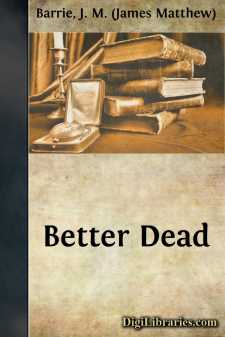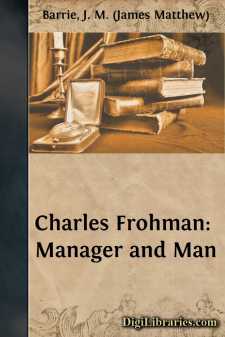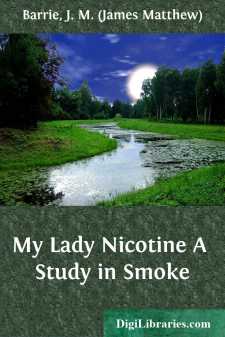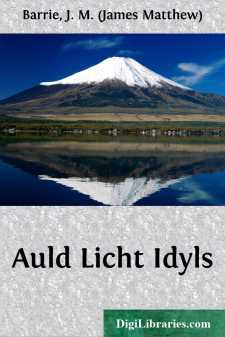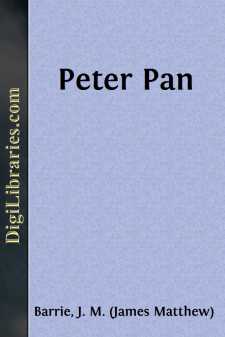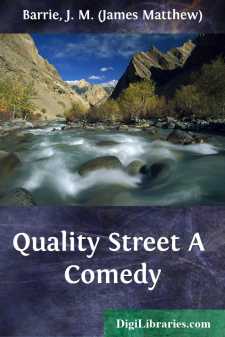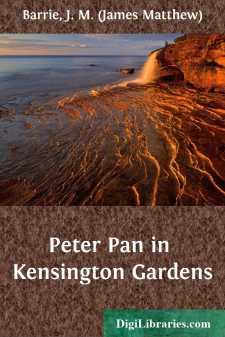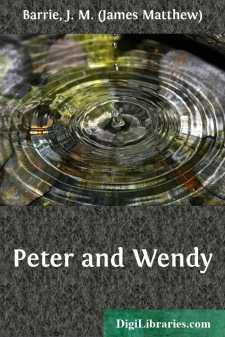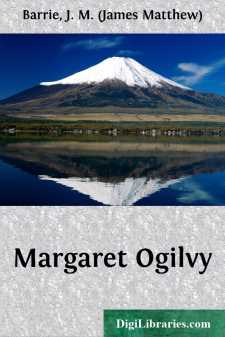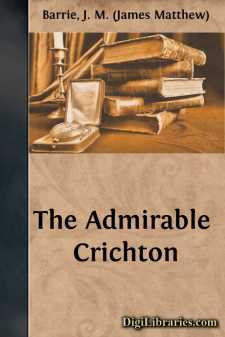Categories
- Antiques & Collectibles 13
- Architecture 36
- Art 48
- Bibles 22
- Biography & Autobiography 813
- Body, Mind & Spirit 142
- Business & Economics 28
- Children's Books 15
- Children's Fiction 12
- Computers 4
- Cooking 94
- Crafts & Hobbies 4
- Drama 346
- Education 46
- Family & Relationships 57
- Fiction 11828
- Games 19
- Gardening 17
- Health & Fitness 34
- History 1377
- House & Home 1
- Humor 147
- Juvenile Fiction 1873
- Juvenile Nonfiction 202
- Language Arts & Disciplines 88
- Law 16
- Literary Collections 686
- Literary Criticism 179
- Mathematics 13
- Medical 41
- Music 40
- Nature 179
- Non-Classifiable 1768
- Performing Arts 7
- Periodicals 1453
- Philosophy 64
- Photography 2
- Poetry 896
- Political Science 203
- Psychology 42
- Reference 154
- Religion 513
- Science 126
- Self-Help 84
- Social Science 81
- Sports & Recreation 34
- Study Aids 3
- Technology & Engineering 59
- Transportation 23
- Travel 463
- True Crime 29
J. M. (James Matthew) Barrie
James Matthew Barrie (1860-1937) was a Scottish novelist and playwright best known for creating the beloved character Peter Pan. His play "Peter Pan, or The Boy Who Wouldn't Grow Up" and the subsequent novel "Peter and Wendy" have become timeless classics in children's literature. Barrie was also a significant figure in the literary circles of his time, and he was made a baronet in 1913 and awarded the Order of Merit in 1922 for his contributions to literature.
Author's Books:
Sort by:
INTRODUCTION This is the only American edition of my books produced with my sanction, and I have special reasons for thanking Messrs. Scribner for its publication; they let it be seen, by this edition, what are my books, for I know not how many volumes purporting to be by me, are in circulation in America which are no books of mine. I have seen several of these, bearing such titles as "Two of...
more...
Charles Frohman:an Appreciation By James M. Barrie The man who never broke his word. There was a great deal more to him, but every one in any land who has had dealings with Charles Frohman will sign that. I would rather say a word of the qualities that to his friends were his great adornment than about his colossal enterprises or the energy with which he heaved them into being; his energy that was like...
more...
CHAPTER I. MATRIMONY AND SMOKING COMPARED. The circumstances in which I gave up smoking were these: I was a mere bachelor, drifting toward what I now see to be a tragic middle age. I had become so accustomed to smoke issuing from my mouth that I felt incomplete without it; indeed, the time came when I could refrain from smoking if doing nothing else, but hardly during the hours of toil. To lay aside my...
more...
CHAPTER I. THE SCHOOL-HOUSE. Early this morning I opened a window in my school-house in the glen of Quharity, awakened by the shivering of a starving sparrow against the frosted glass. As the snowy sash creaked in my hand, he made off to the waterspout that suspends its "tangles" of ice over a gaping tank, and, rebounding from that, with a quiver of his little black breast, bobbed through the...
more...
Chapter 1 PETER BREAKS THROUGH All children, except one, grow up. They soon know that they will grow up, and the way Wendy knew was this. One day when she was two years old she was playing in a garden, and she plucked another flower and ran with it to her mother. I suppose she must have looked rather delightful, for Mrs. Darling put her hand to her heart and cried, "Oh, why can't you remain...
more...
ACT I The scene is the blue and white room in the house of the Misses Susan and Phoebe Throssel in Quality Street; and in this little country town there is a satisfaction about living in Quality Street which even religion cannot give. Through the bowed window at the back we have a glimpse of the street. It is pleasantly broad and grass-grown, and is linked to the outer world by one demure shop, whose...
more...
Peter Pan If you ask your mother whether she knew about Peter Pan when she was a little girl she will say, "Why, of course, I did, child," and if you ask her whether he rode on a goat in those days she will say, "What a foolish question to ask, certainly he did." Then if you ask your grandmother whether she knew about Peter Pan when she was a girl, she also says, "Why, of course, I...
more...
PETER BREAKS THROUGH All children, except one, grow up. They soon know that they will grow up, and the way Wendy knew was this. One day when she was two years old she was playing in a garden, and she plucked another flower and ran with it to her mother. I suppose she must have looked rather delightful, for Mrs. Darling put her hand to her heart and cried, 'Oh, why can't you remain like this...
more...
CHAPTER I—HOW MY MOTHER GOT HER SOFT FACE On the day I was born we bought six hair-bottomed chairs, and in our little house it was an event, the first great victory in a woman’s long campaign; how they had been laboured for, the pound-note and the thirty threepenny-bits they cost, what anxiety there was about the purchase, the show they made in possession of the west room, my father’s unnatural...
more...
ACT I. AT LOAM HOUSE, MAYFAIR A moment before the curtain rises, the Hon. Ernest Woolley drives up to the door of Loam House in Mayfair. There is a happy smile on his pleasant, insignificant face, and this presumably means that he is thinking of himself. He is too busy over nothing, this man about town, to be always thinking of himself, but, on the other hand, he almost never thinks of any other...
more...


